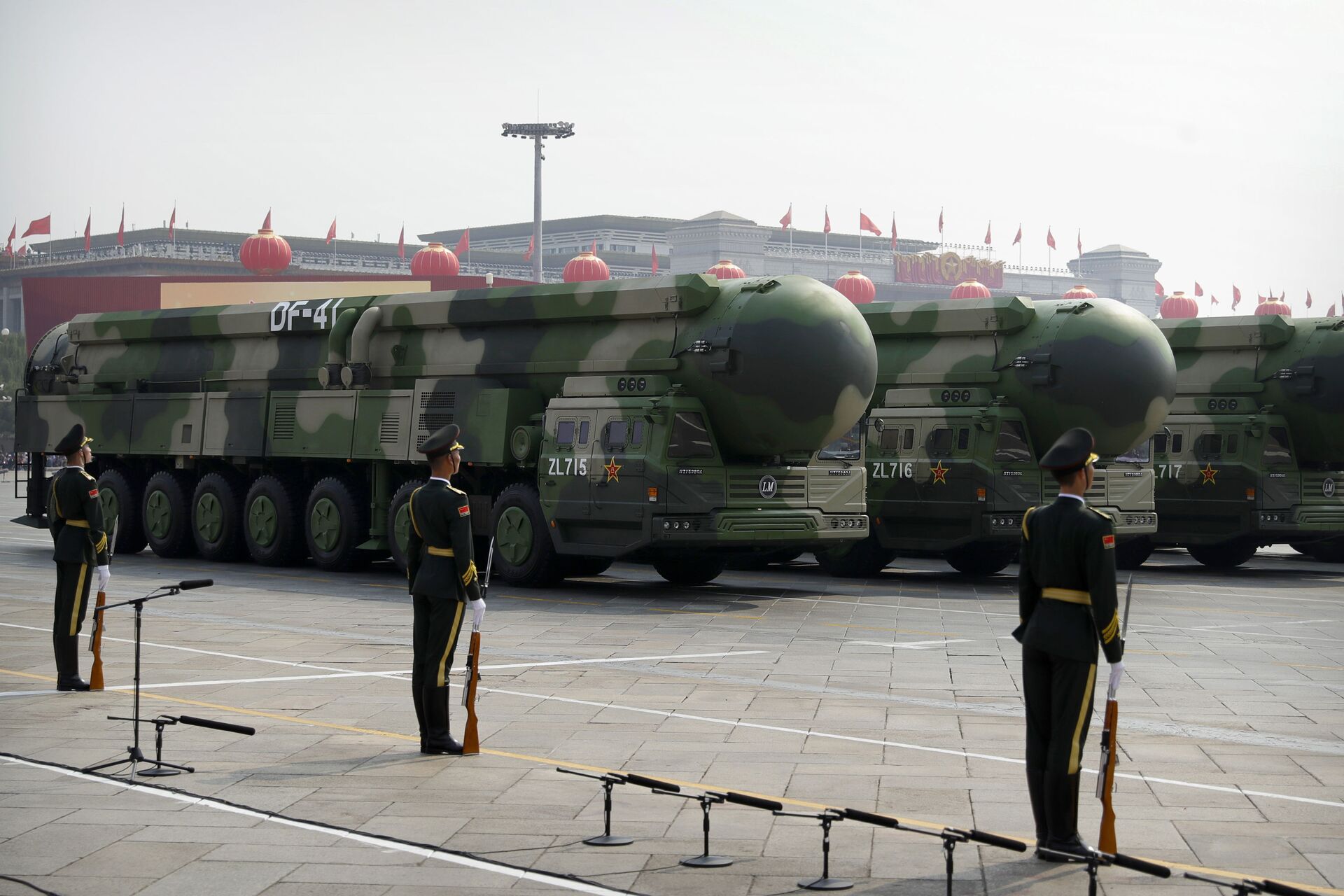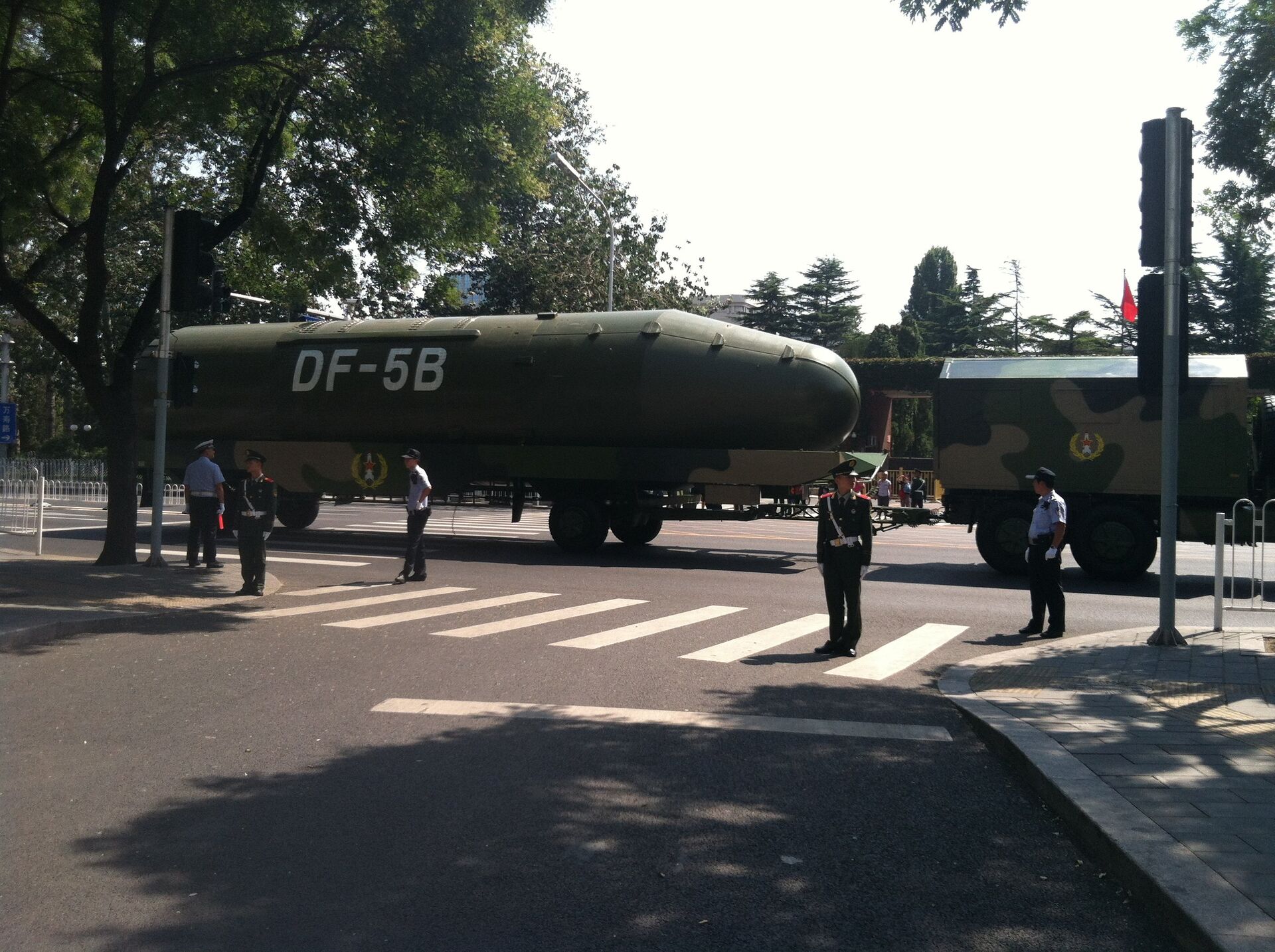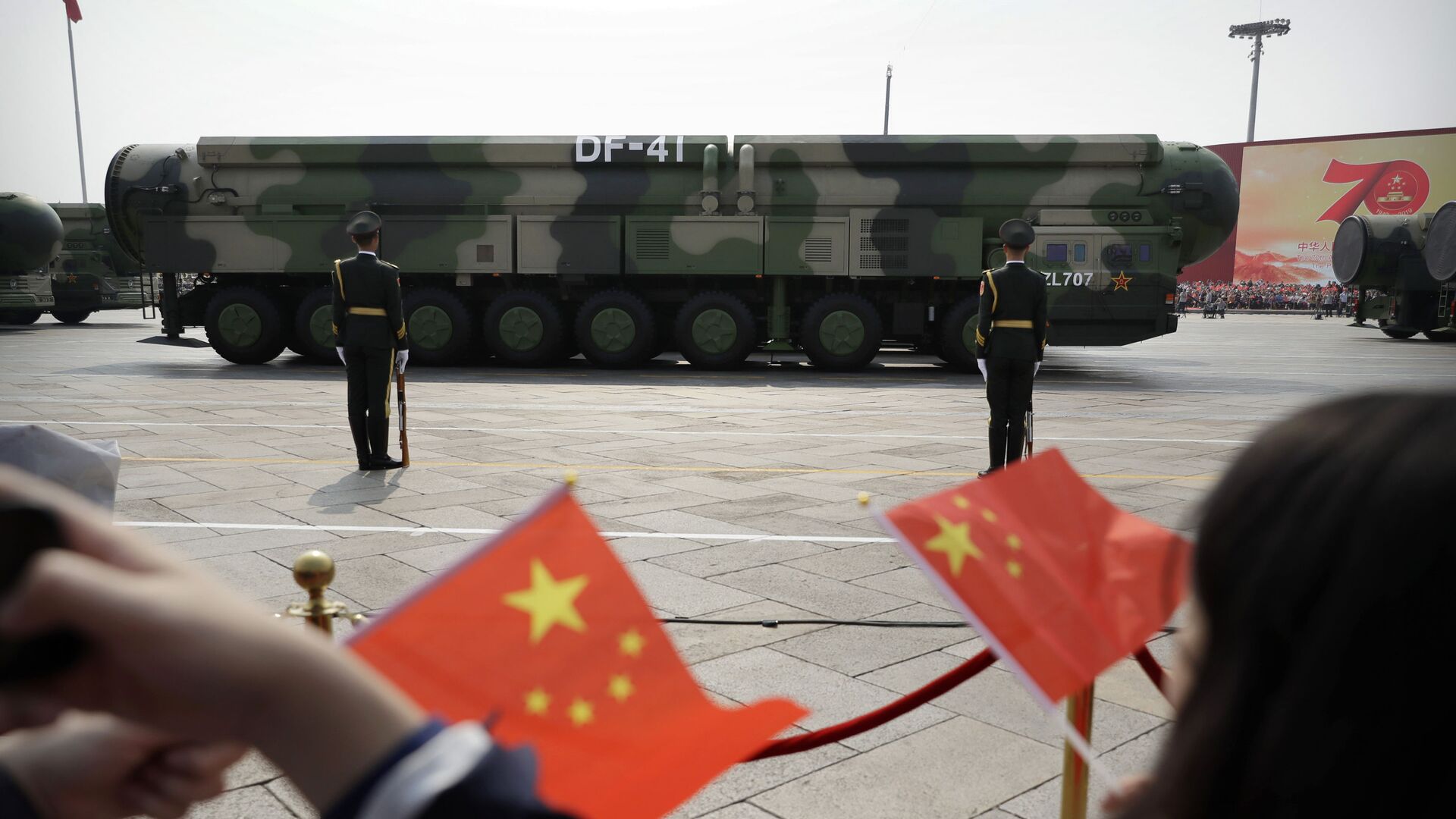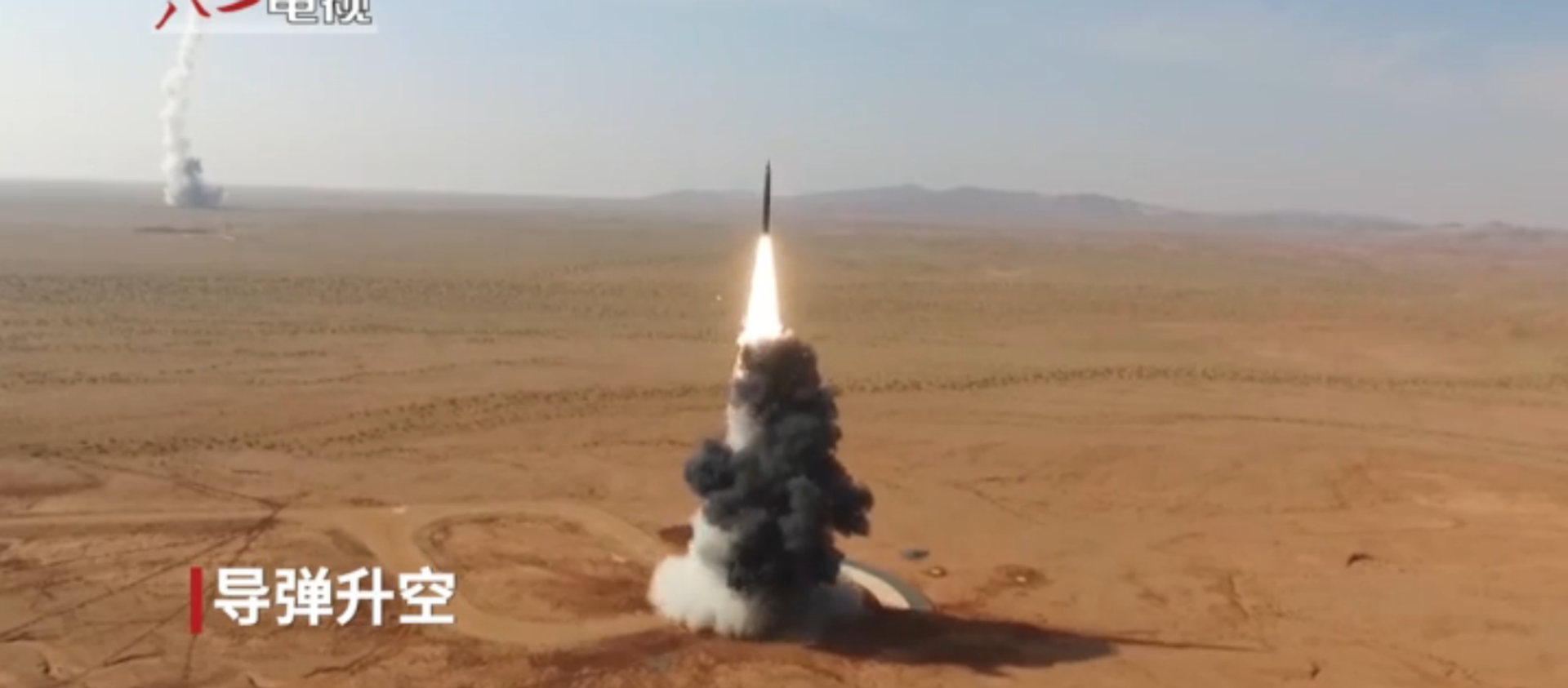Сhina is apparently developing the capability of launching advanced intercontinental ballistic missiles (ICBMs) from underground silos to swiftly retaliate against a possible nuclear attack, the AP news agency has cited US expert Hans Kristensen as saying.
Kristensen, who is an analyst with the Federation of American Scientists, made the conclusion after he analysed a spate of commercial satellite photos that he recently obtained. According to him, the images indicate that China is looking to counter what it may perceive as an increasing threat from the US. The Pentagon has not commented on the matter yet.
The analyst added that the pictures seemed to show China had started building at least 16 underground silos at a huge missile training range near Jilantai in the country's north-central area.

These silos add to the 20 that China already operates with an older ICBM, the DF-5, Kristensen explained, adding that "it would only constitute a fraction of the number of ICBM silos operated by the United States and Russia".
AP reported that almost all of the silos tracked by Kristensen appeared to have been designed to accommodate the Chinese military's sophisticated DF-41 ICBM, which is capable of targeting Alaska and much of the continental United States.
The newer-generation ICBM features a solid-fuel component that enables an operator to more quickly prepare the missile for launch as compared to the DF-5.

Kristensen claimed that China's apparent push to develop silos where the DF-41s can be stationed shows that 'they're trying to build up the survivability of their [nuclear] force" and that "it raises some questions about this fine line in nuclear strategy".
The claims come after the Pentagon argued in its annual report on Chinese military developments last summer that Beijing plans to boost the peacetime capability of its nuclear forces by placing more ICBMs in underground silos.
"The PRC's nuclear weapons policy prioritises the maintenance of a nuclear force able to survive a first strike and respond with sufficient strength to inflict unacceptable damage on an enemy", the report asserted.
A separate survey by the Carnegie-Tsinghua Centre for Global Policy in 2018 suggested that China is looking to increase its nuclear arsenal over concerns that its existing stockpile isn't strong enough to stand a chance against other countries.
Last year, China refused to join the Russia-US talks on the future of the last major arms control pact, the New Strategic Arms Reduction Treaty (START), arguing that it only has a fraction of the nuclear arsenals wielded by Moscow and Washington.




